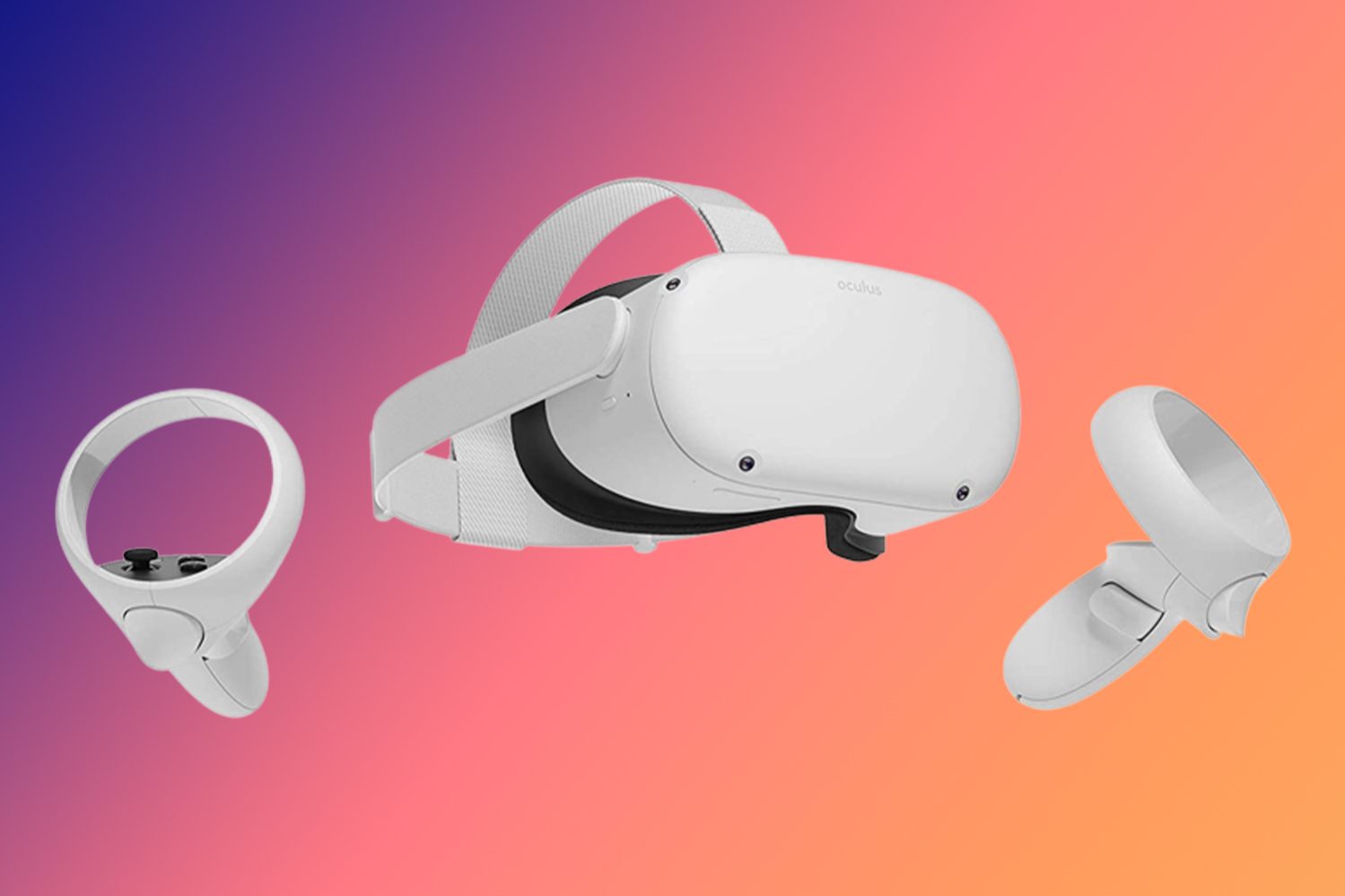Welcome to the future of immersive technology! As we step into the year 2024, the realm of Virtual Reality (VR) continues to captivate and redefine our digital experiences. The evolution of VR headsets has been nothing short of remarkable, with cutting-edge advancements in hardware, software, and overall user experience. In this comprehensive guide, we embark on a journey to unveil the Best VR Headset of 2024. Whether you’re a seasoned virtual explorer or a newcomer eager to dive into the world of immersive realities, our curated list will guide you through the top contenders, highlighting the features that set them apart. Join us as we explore the forefront of innovation, pushing the boundaries of what is possible in the exciting realm of virtual immersion.

What is VR?
Virtual Reality (VR) is a computer-generated simulation of a three-dimensional environment that can be interacted with in a seemingly real or physical way by a person using special electronic equipment, such as a headset with a screen inside or gloves fitted with sensors. The goal of VR is to provide an immersive and lifelike experience that simulates the senses of sight, hearing, and sometimes touch, enabling users to feel as though they are present in a different, computer-generated world.
VR technology typically involves the use of specialized hardware and software to create a convincing virtual environment. The headset, or VR goggles, is a key component, providing a visual interface that covers the user’s field of view with computer-generated images. Some advanced VR systems also incorporate motion-sensing devices, haptic feedback, and spatial audio to enhance the overall experience.
Here’s Some Best VR Headsets
Embark on a journey into the immersive realms of technology as we present to you, “Here’s Some Best VR Headsets” – a curated exploration of the finest virtual reality devices that redefine the way we experience the digital world in 2024.
Read More- Your Guide to the Best Wireless Earbuds in 2024
Meta Quest 3 (Best VR headset overall)
The Meta Quest 3 is an improved version of the Quest 2, with color pass-through cameras that enable augmented reality experiences, a faster processor (which can handle more power than the Quest Pro), and a higher resolution. Actually, the Pro’s superior eye-tracking technology is the only thing that sets it apart from this headset.

Specifications
| Type | Standalone |
| Resolution | 2,064 by 2,208 (per eye) |
| Refresh Rate | 120 Hz |
| Motion Detection | 6DOF |
| Controls | Meta Quest Touch Controllers |
| Hardware Platform | Standalone |
| Software Platform | Meta |
Pros & Cons
| Pros | Cons |
|---|---|
| Color pass-through cameras allow you to clearly see your surroundings | Short battery life |
| High-resolution picture | Lacks eye-tracking tech |
| Powerful processor | – |
| Comfortable design | – |
Meta Quest 2 (Best Affordable VR Headset)
Even though the more recent Quest 3 has surpassed the Meta Quest 2, it is still superior when it comes to value for money. Not unless you happen to stumble onto an absurdly inexpensive VR headset at a yard sale or something similar. If you’re new to all of this, the Quest 2 is a terrific way to test out virtual reality (VR) for the first time. For many users, it will provide an excellent VR experience.

Specifications
| Type | Standalone |
| Resolution | 1,832 by 1,920 (per eye) |
| Refresh Rate | 120 Hz |
| Motion Detection | 6DOF |
| Controls | Oculus Touch |
| Hardware Platform | Standalone |
| Software Platform | Oculus |
Pros & Cons
| Pros | Cons |
|---|---|
| Doesn’t require any cables | Short battery life |
| Sharp display | – |
| Powerful processor | – |
| Accurate motion tracking | – |
| Optional PC tethering via accessory cable | – |
Sony PlayStation VR2 (Best for PlayStation 5 Gamers)
The PlayStation VR 2, which combines the power of the PlayStation 5 with new eye-tracking and motion-control technology to make VR games even more immersive, is a major improvement over the original. The lightweight headgear also has outstanding specifications, such as a brilliant OLED display that provides each eye with a picture that is 2,000 by 2,040-pixels.

Specifications
| Type | Tethered |
| Resolution | 2,000 by 2,040 (per eye) |
| Refresh Rate | 120 Hz |
| Motion Detection | 6DOF |
| Controls | PlayStation VR2 Sense |
| Hardware Platform | PlayStation 5 |
| Software Platform | PlayStation 5 |
Pros & Cons
| Pros | Cons |
|---|---|
| Excellent graphics and sound | Not compatible with PlayStation VR games |
| Strong launch library | – |
| Useful eye-tracking tech | – |
| Lightweight build | – |
| Easy to set up | – |
Valve Index VR Kit
The PC-tethered VR headgear from Valve is expensive and doesn’t seem to be all that different from the competitors. However, the Valve Index truly shines due to the other important element of the VR experience: the controls. The headgear is only one aspect of the whole VR experience. They are groundbreaking because they can record individual finger movements and greatly enhance the immersion of games that utilize this capability, unlike ordinary trigger grips seen on other controllers. In Half-Life: Alyx, it’s fascinating to watch your fingers wriggle.

Specifications
| Type | Tethered |
| Resolution | 1,600 by 1,440 (per eye) |
| Refresh Rate | 120 Hz |
| Motion Detection | 6DOF |
| Controls | Valve Index Controllers |
| Hardware Platform | PC |
| Software Platform | SteamVR |
Pros & Cons
| Pros | Cons |
|---|---|
| Immersive, finger-tracking controllers | Expensive |
| High, 120Hz refresh rate delivers smooth motion | Occasionally frustrating tethered design |
| Lots of VR software available on PC via SteamVR | – |
HTC Vive Pro 2
At 2,448 × 2,448 pixels per eye, this cutting-edge, semi-consumer VR headset caters to both amateurs and pros, offering the finest image to date. It costs a lot, but it provides the greatest VR images we’ve seen thus far: Fortunately, you can use the Valve Index controllers with it. The headset alone costs $799, and that doesn’t include base stations and controllers.
Similar to the Index, it is compatible with SteamVR and features Viveport, its own virtual reality applications store. Rather than offering a la carte software purchases, the store offers the subscription-based Viveport Infinity service, which grants infinite access to VR activities. That’s a pleasant extra not related to SteamVR.

Specifications
| Type | Tethered |
| Resolution | 2,440 by 2,440 (per eye) |
| Refresh Rate | 120 Hz |
| Motion Detection | 6DOF |
| Controls | None Included |
| Hardware Platform | PC |
| Software Platform | SteamVR |
Pros & Cons
| Pros | Cons |
|---|---|
| The best resolution for VR gaming | Expensive |
| Smooth motion tracking | Doesn’t include necessary base stations or controllers |
| Works with Valve Index controllers | – |
Meta Quest Pro
With sophisticated eye- and face-tracking technology, the Meta Quest Pro is an amazing headset. But, the price is much higher than that of the Quest 2 and Quest 3, so before you invest, you should be convinced of the eye tracking.

Specifications
| Type | Standalone |
| Resolution | 1,920 by 1,800 (per eye) |
| Refresh Rate | 90 Hz |
| Motion Detection | 6DOF |
| Controls | Motion Controllers |
| Hardware Platform | Standalone |
| Software Platform | Meta |
Pros & Cons
| Pros | Cons |
|---|---|
| Improved design with a more comfortable fit than the Quest 2 | Expensive |
| Cool eye- and face-tracking tech | Meta Horizon’s metaverse is often empty and sometimes buggy |
| Color pass-through camera | Short battery life |
| Rechargeable headset and controllers | – |
| Doesn’t require a PC to operate | – |
Which VR Headset Is the Best?
These days, VR headsets can be classified as independent or tethered. The HTC Vive Pro 2, PlayStation VR, and Valve Index are examples of tethered headsets that are physically attached to PCs (or, in the case of the PS VR and PS VR 2, a PlayStation 4 or PlayStation 5). Their connections make them a little bulky, but your VR experience may be far more sophisticated because all of the video processing is housed in a box that you don’t have to strap directly to your face. Motion-sensing controllers enable comprehensive 6DOF (six degrees of freedom) movement tracking for both your hands and your head using either external sensors or outward-facing cameras.
Conclusion
In conclusion, the year 2024 marks a significant leap in the immersive technology landscape, with Virtual Reality (VR) headsets showcasing remarkable advancements in hardware, software, and overall user experience. Our exploration of the Best VR Headsets has unveiled a diverse range of options catering to different preferences and needs.
Choosing the best VR headset ultimately depends on individual preferences, budget constraints, and specific use cases. Whether you prioritize affordability, high-resolution displays, innovative controllers, or compatibility with existing gaming platforms, the diverse options presented in this guide cater to a wide range of virtual explorers. As technology continues to evolve, the future of immersive experiences promises even more exciting possibilities in the ever-expanding realm of Virtual Reality.

